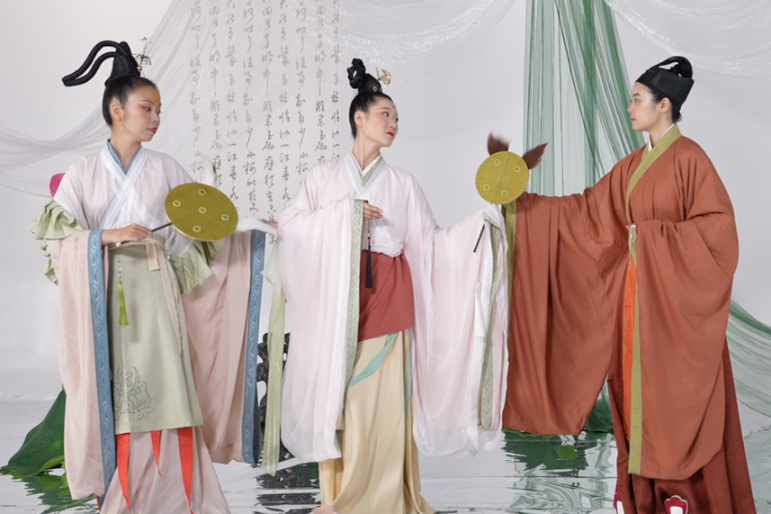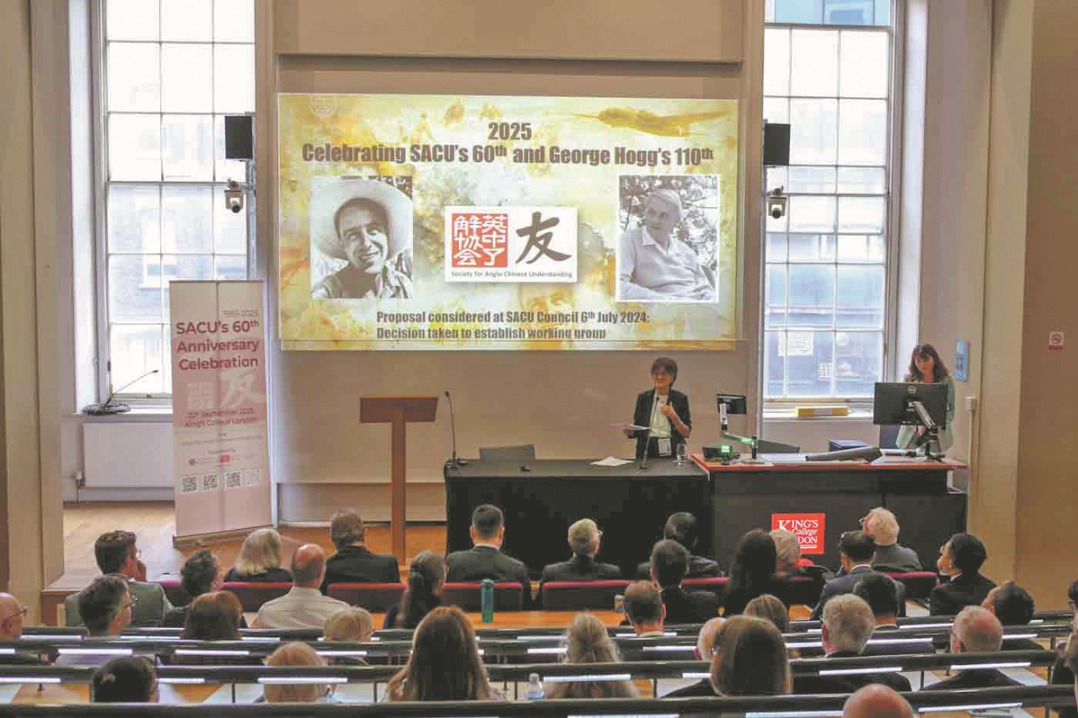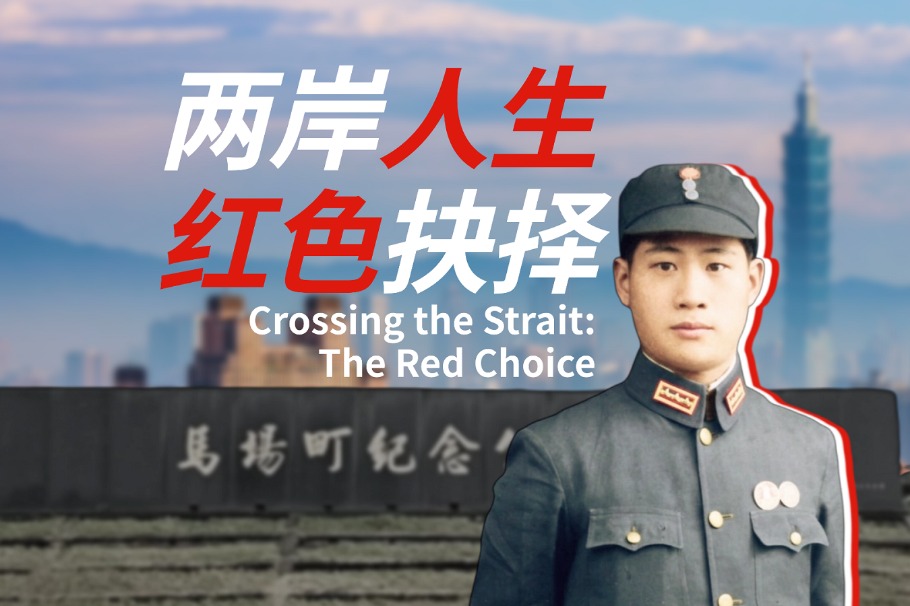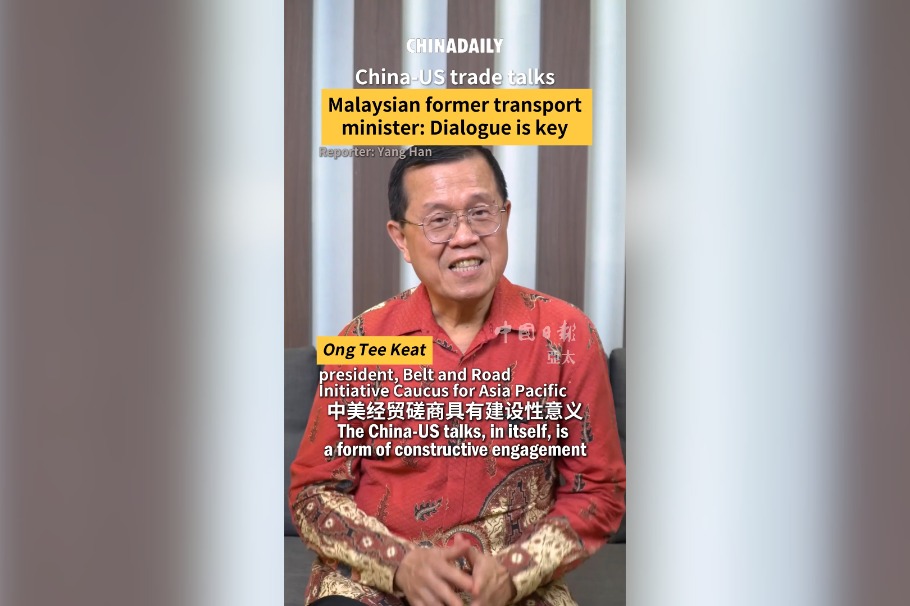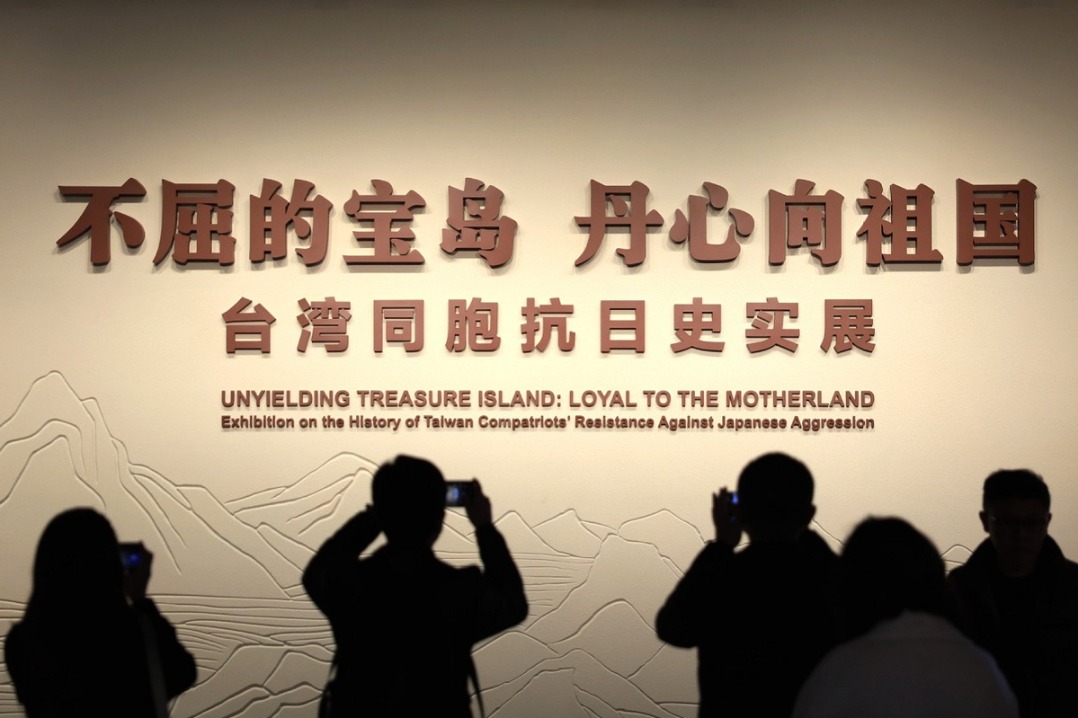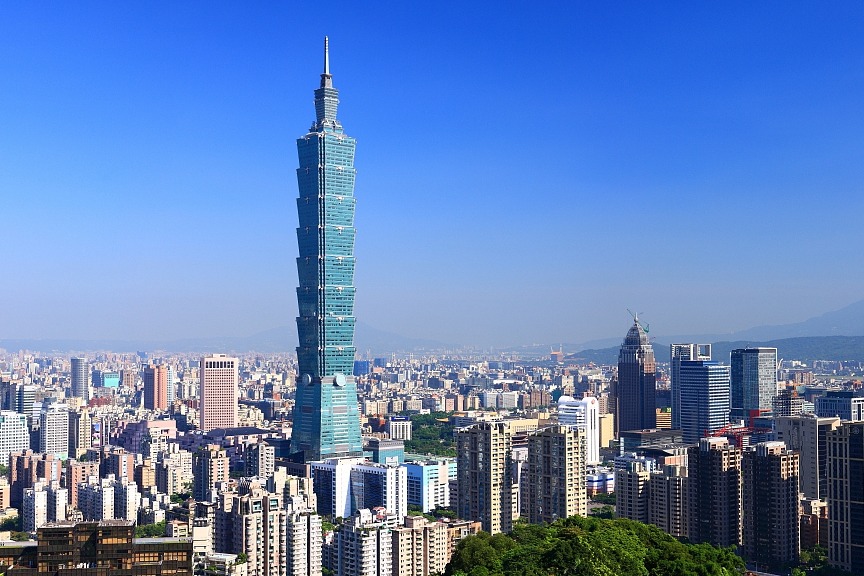Eighty years on, Taiwan's future still lies in reunification

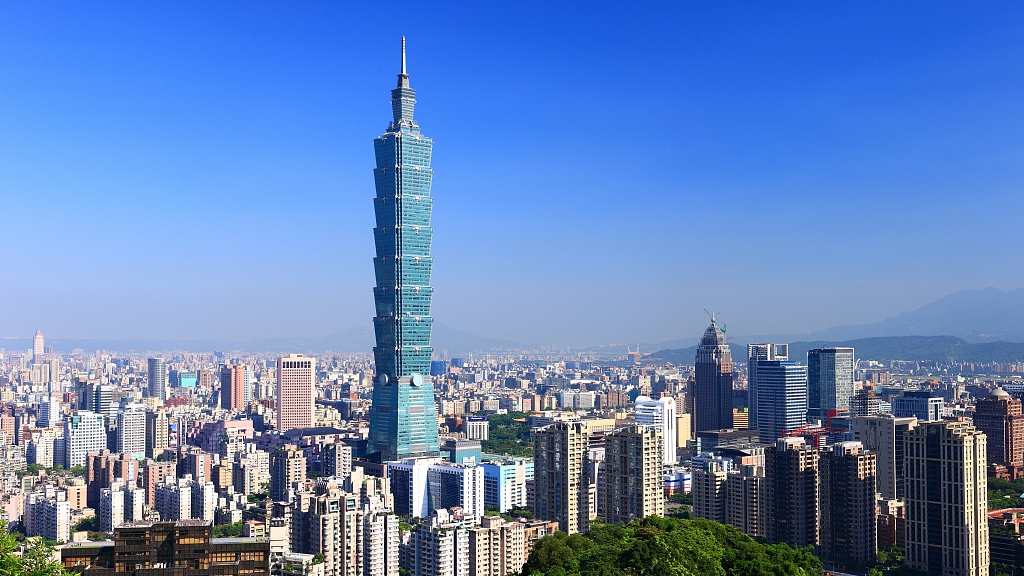
Editor's note: This year marks the 80th anniversary of Taiwan's restoration to China, a key outcome of the victory in the World Anti-Fascist War. In Dialogues with Thinkers, China Daily's high-end interview program, Yang Yizhou, vice-chairman of the All-China Federation of Taiwan Compatriots, reflects on how this historic event shaped the postwar order and warns that the Democratic Progressive Party's distortion of history, suppression of cross-Strait exchanges and reliance on foreign powers against reunification not only betray that legacy but also harm Taiwan's future.
Q1: Why is Taiwan's restoration an important outcome of the victory in the World Anti-Fascist War?
A: The victories in the Chinese People's War of Resistance Against Japanese Aggression (1931-45) and the World Anti-Fascist War laid the foundation of today's international order. One of their most important results was the confirmation that Taiwan belongs to China.
Historically, Taiwan was ceded to Japan after China's defeat in the 1895 First Sino-Japanese War under the Treaty of Shimonoseki. This itself is proof that Taiwan was originally Chinese territory. In 1941, China formally declared war on Japan and annulled all unequal treaties, including the one that had ceded Taiwan. The Cairo Declaration of 1943, jointly issued by China, the United States and the United Kingdom, clearly stated that Taiwan and the Penghu Islands — territories stolen by Japan — must be returned to China. The Potsdam Proclamation of 1945 reaffirmed that the terms of the Cairo Declaration "shall be carried out".
When Japan surrendered on Aug 15, 1945, and accepted those terms, Taiwan's return to China became a legal and historical fact. On Oct 25 the same year, China officially recovered Taiwan, and by early 1946, Taiwan residents had regained Chinese citizenship.
Claims that "Taiwan's status is undetermined" are politically motivated fabrications invented during the Cold War to justify US interference. Taiwan's return to China is a settled outcome of World War II — an integral part of the anti-fascist victory and the postwar international order that remains unshakable today.
Q2: Why is patriotism considered a proud tradition among Taiwan residents?
A: Taiwan residents are part of the Chinese nation. For centuries, generations from the Chinese mainland migrated to Taiwan, cultivating the same heritage and values. Patriotism was the foremost among these values. This spirit has never faded, not even under foreign invasion and colonial rule.
When the Treaty of Shimonoseki in 1895 forced China to cede Taiwan to Japan, Taiwan residents were the first to resist. Led by Wang Chunyuan and other Taiwan compatriots, they petitioned the Qing court, declaring that it is "better to die as loyal citizens than live as captives". Their defiance inspired mainland reformers like Kang Youwei to issue the Gongche petition, or the "joint petition of imperial examination candidates to the emperor" which ignited a nationwide anti-Japanese movement.
After Japan's occupation, Taiwan residents fought fiercely for months, defending their homeland with simple weapons against a powerful invader. Even after Japan declared "pacification", uprisings continued for decades. When armed resistance was crushed, other forms of struggle emerged — through culture, education, and civic movements — to preserve the Chinese identity under harsh colonial rule.
When Japan started its "Japanization" campaign, over 50,000 Taiwan residents crossed the sea to join the mainland forces in the war against Japan. Others on the island quietly resisted assimilation, holding fast to their national spirit and awaiting reunion with their motherland.
When Japan surrendered in 1945, Taiwan erupted in celebration. There were firecrackers, drumbeats and tears of joy. After fifty years of struggle, Taiwan residents finally returned home. Their enduring patriotism had kept alive the Chinese nation's flame through half a century of hardship.
Q3: Why does the DPP seek to glorify Japan's brutal colonial rule, and how will this reshape young people's perspective of history and cross-Strait relations?
A: This revisionism is a political tool of the pro-independence forces in Taiwan and is supported by Japan and some Western countries. To justify their separatist agenda, they glorify Japan's 50-year colonial rule, whereas it was cruel and bloody. Even Japanese records show that hundreds of thousands of Taiwan residents were killed or persecuted for resistance.
By glorifying colonial rule, the separatists attempt to distort history: they erase the sacrifices of Taiwan residents who fought against Japanese oppression and hide Taiwan's deep patriotic tradition. They want people to believe that the Taiwan island willingly accepted foreign rule, using this false narrative to legitimize "Taiwan independence" and to discredit China's history and development.
But Japan's occupation never benefited Taiwan — it exploited the island's rice, sugar, and resources for Japan's militarism while leaving its people in hardship. To praise such a regime is to betray the nation and side with fascism against the global anti-fascist cause.
This distortion of information has confused many young Taiwan residents about their own roots. Yet identity can't be rewritten — being Chinese is in our blood and shared history. As more young people visit the mainland and see the reality for themselves, many begin to awaken, realizing they have been misled. Their sense of belonging as Chinese is re-emerging, proving that truth and national spirit can't be erased.
Q4: Why does the DPP claim to defend "freedom" while restricting cross-Strait exchanges and suppressing dissent?
A: This is a classic tactic of the Taiwan independence camp. The DPP disguises separatism under the banner of "freedom and democracy", deceiving both the world and the residents of Taiwan. The real issue across the Strait is political, not about democracy versus authoritarianism. But by equating "democracy" with independence and "reunification" with dictatorship, they've created a false binary to mislead society.
In truth, what the DPP promotes is the opposite of freedom. It spreads lies — such as "Taiwan residents are not Chinese" — and suppresses cross-Strait communication that could expose the truth. To protect these falsehoods, it restricts exchanges, intimidates those who engage with the mainland, and even uses judicial means to silence dissent.
This so-called "democracy" has turned into what many call "green terror". By stifling speech and isolating Taiwan, the DPP reveals a mindset that's closer to fascism than to liberalism. Its actions — rewriting history, manipulating ideology and persecuting opponents — have nothing to do with democratic values.
Taiwan residents are beginning to see through this deception. The DPP's recent defeats in recall votes against opposition lawmakers show that many no longer want to be held hostage by separatist extremism. True democracy means allowing free dialogue and mutual understanding, which ultimately points toward peaceful reunification, not division.
Q5: How has cutting economic ties with the mainland hurt Taiwan's industries, and how does the US tariff war reveal the real cost of "relying on US for independence"?
A: By obstructing cross-Strait cooperation, the DPP has dealt a severe blow to Taiwan's economy. Many projects under the ECFA trade framework have been suspended, and more than 200 tariff-free items — mostly agricultural and industrial exports to the mainland — have been canceled. The worst hit are Taiwan's farmers, fishermen and small manufacturers.
Tourism has also suffered. When cross-Strait travel was open, mainland visitors fueled Taiwan's hotels, shops and scenic spots. Since the DPP halted group tourism, countless local businesses have struggled or closed down. Ordinary Taiwan residents who once benefited from cross-Strait exchanges are now paying the price.
At the same time, US tariff hikes and political pressure have intensified Taiwan's economic crisis. Traditional industries already surviving on thin margins face the worst downturn in the past 40 years. Factories can't afford to export to the US because of higher duties, and are not allowed to supply to the mainland market.
Even TSMC — the pride of Taiwan's tech sector — is being pushed to shift its production to the US under unequal terms, a move that risks hollowing out Taiwan's core semiconductor industry. By catering to Washington and sacrificing national interests, the DPP has effectively "sold out" Taiwan's economy. The true path to stability, many in Taiwan now realize, lies not in confrontation or dependency, but in renewed cross-Strait cooperation and shared growth.
The views don't necessarily represent those of China Daily.
If you have a specific expertise, or would like to share your thought about our stories, then send us your writings at opinion@chinadaily.com.cn, and comment@chinadaily.com.cn.
















